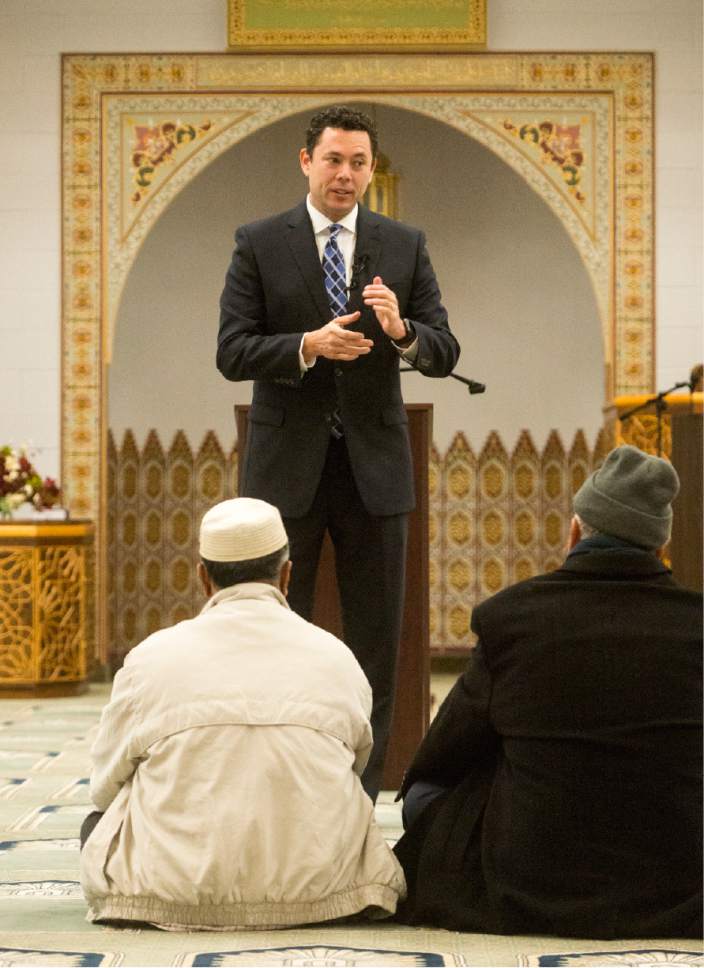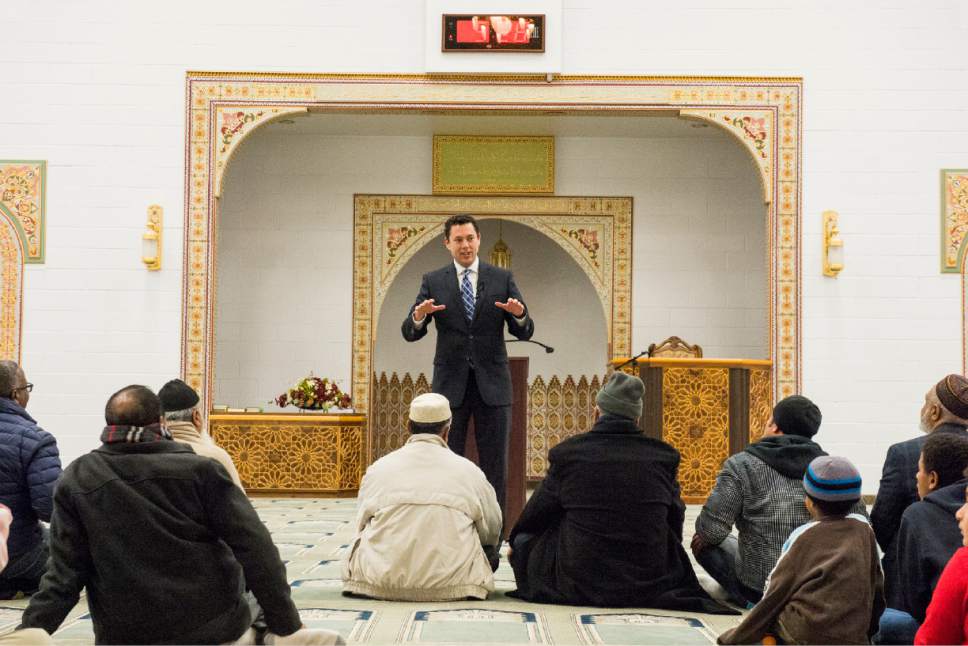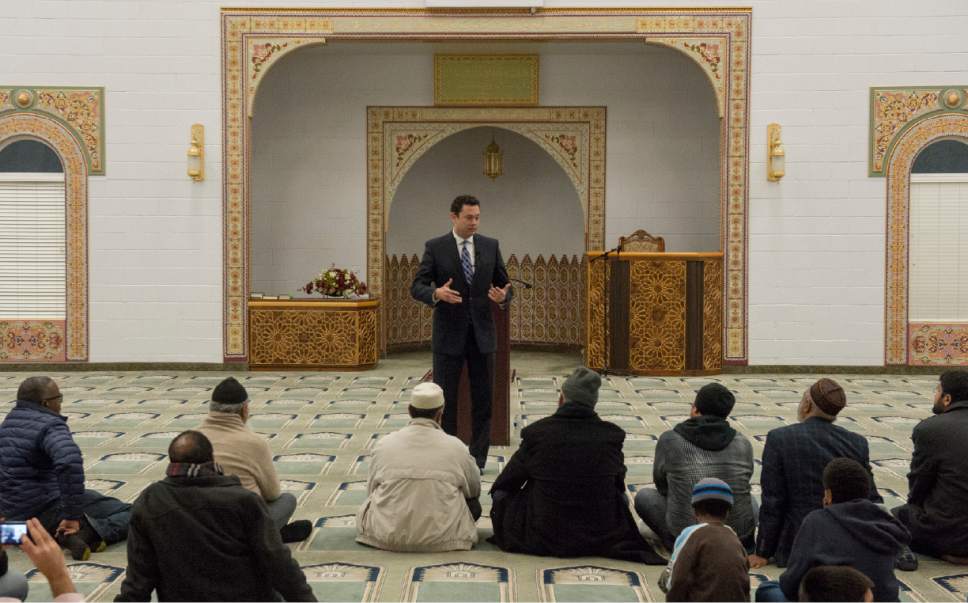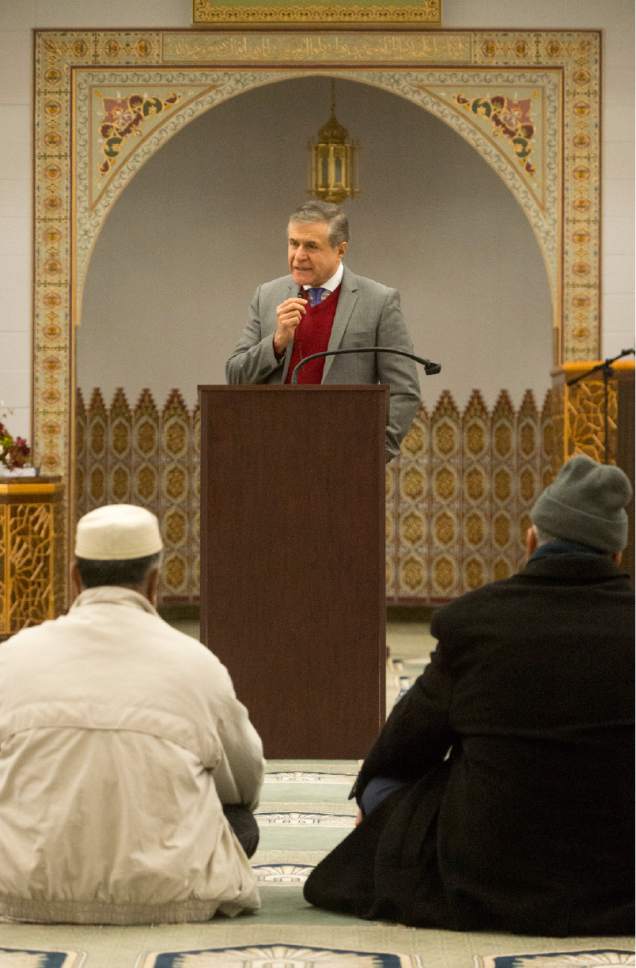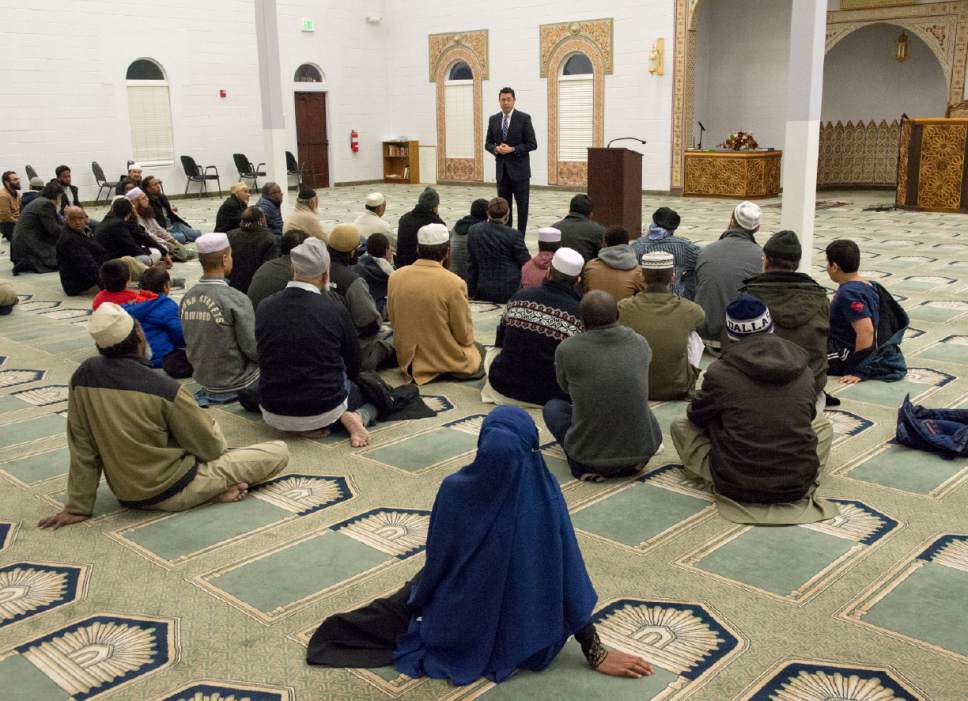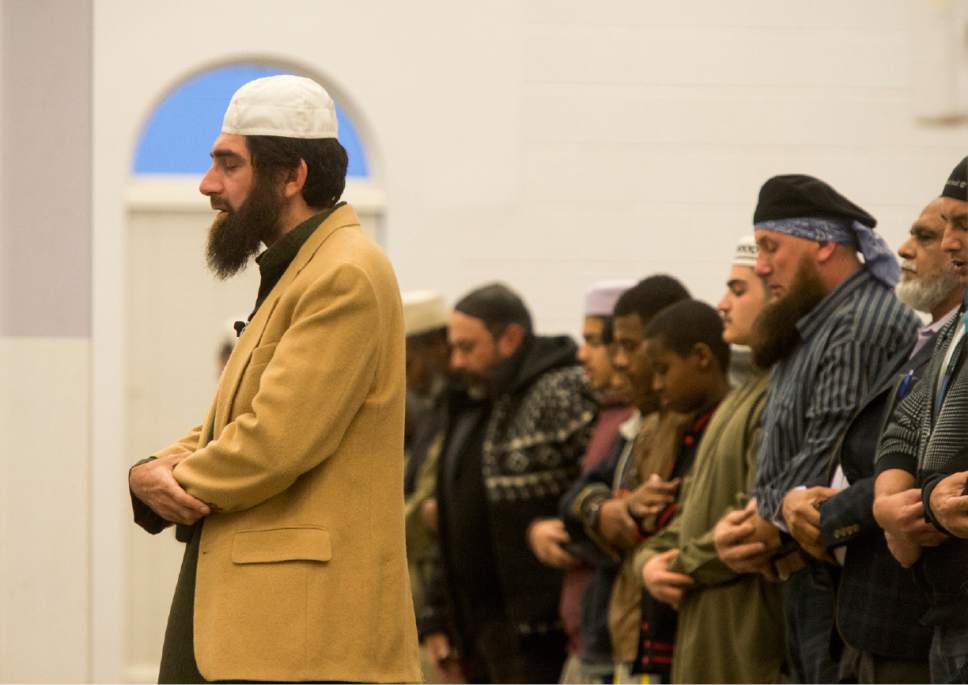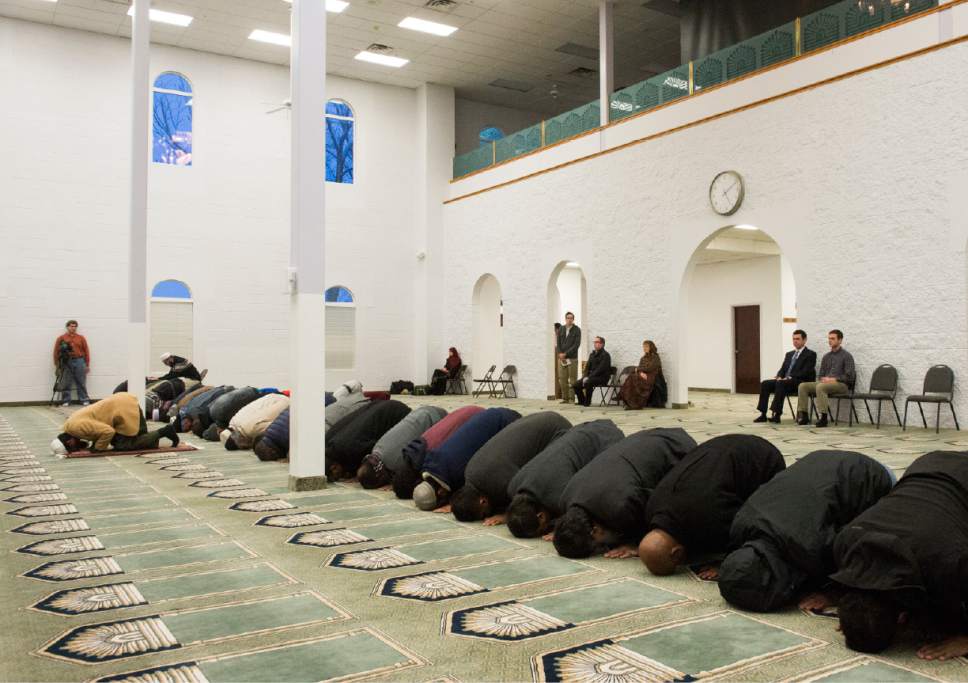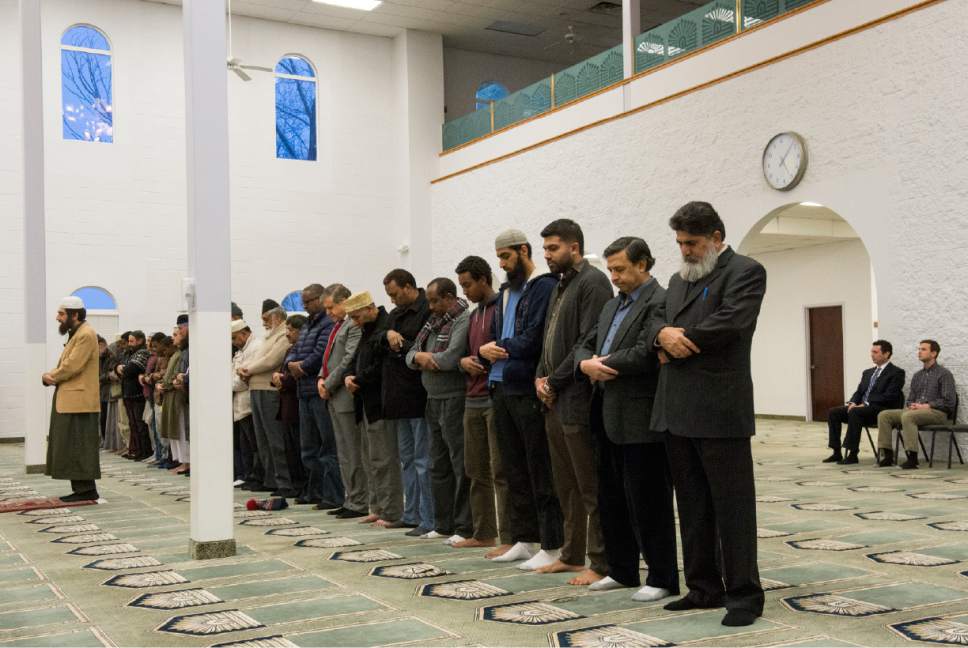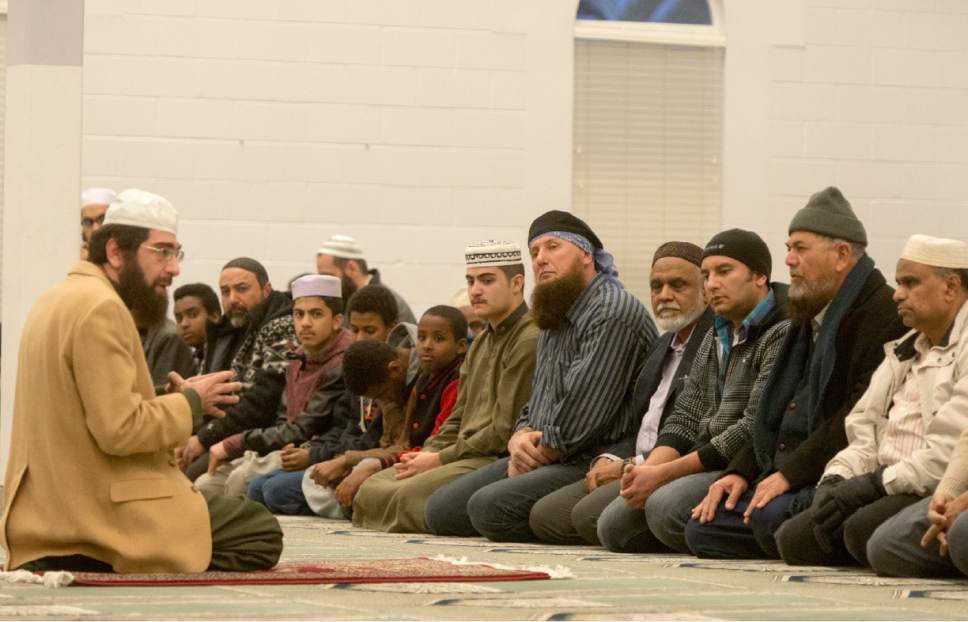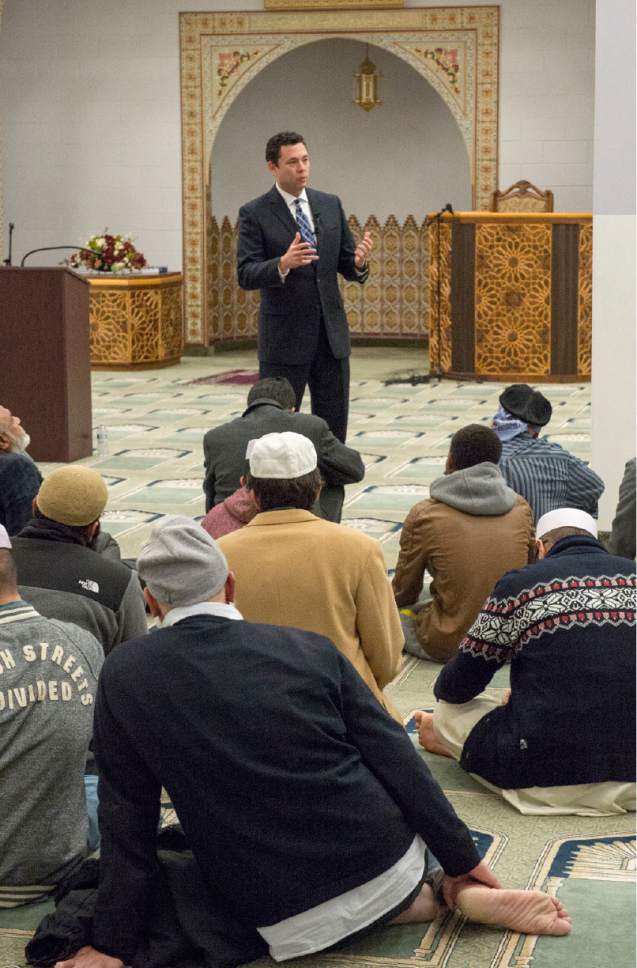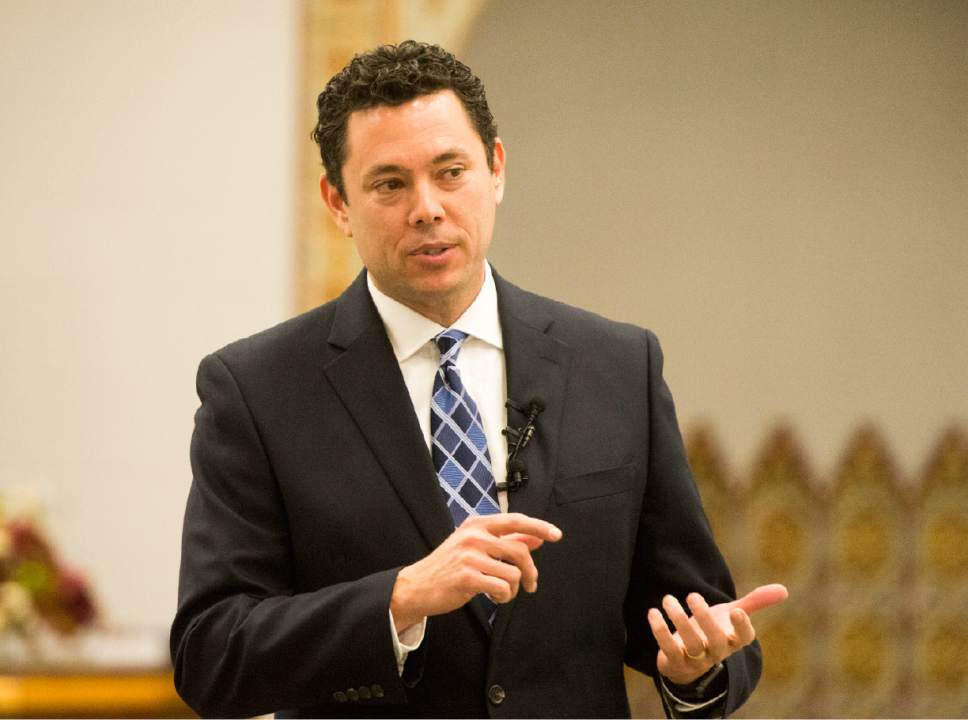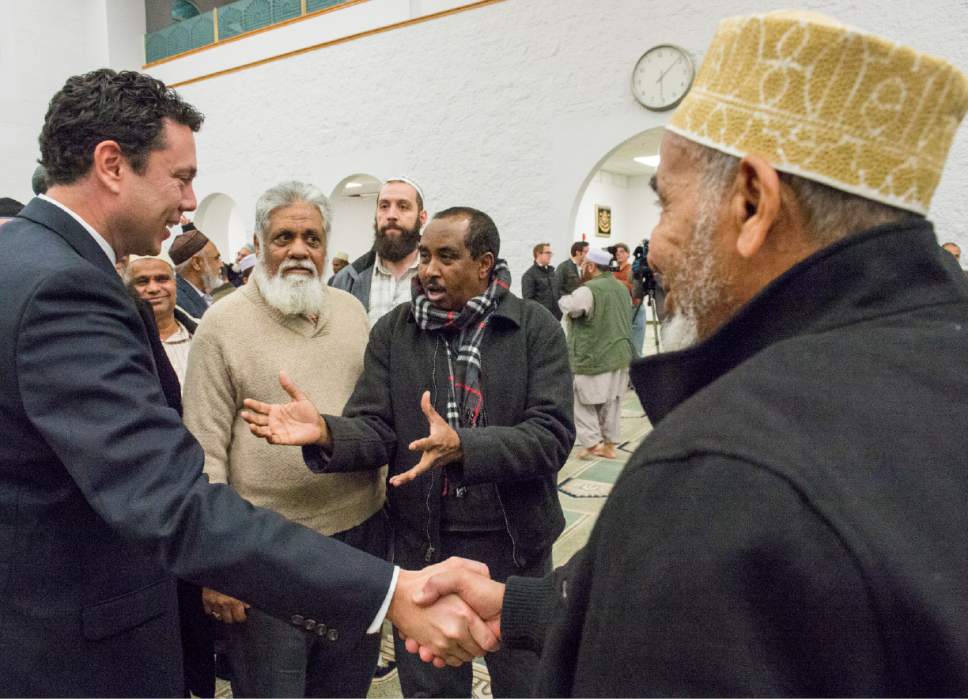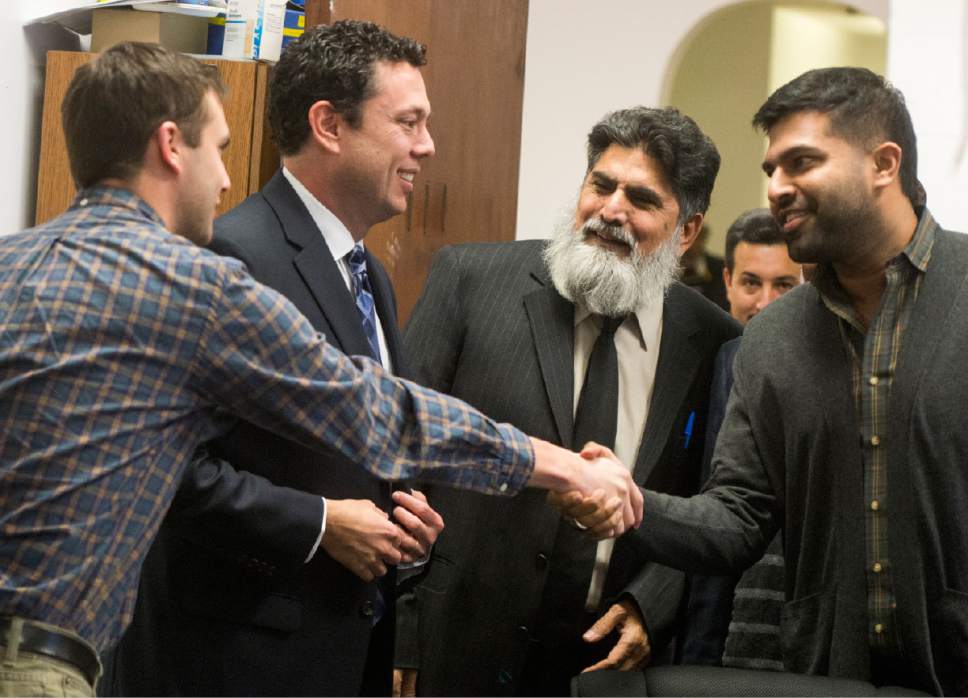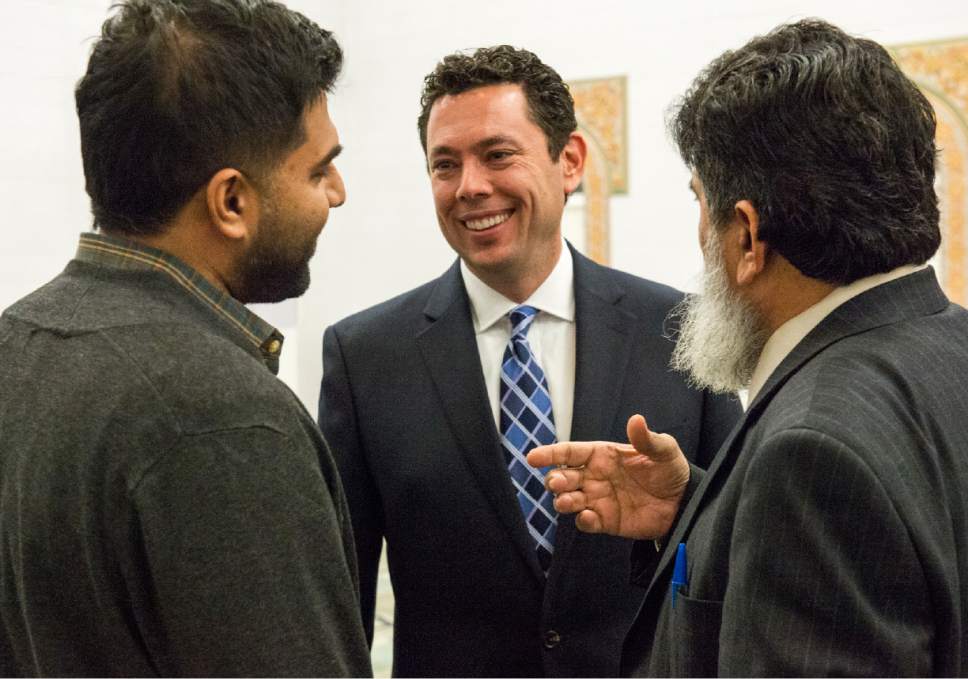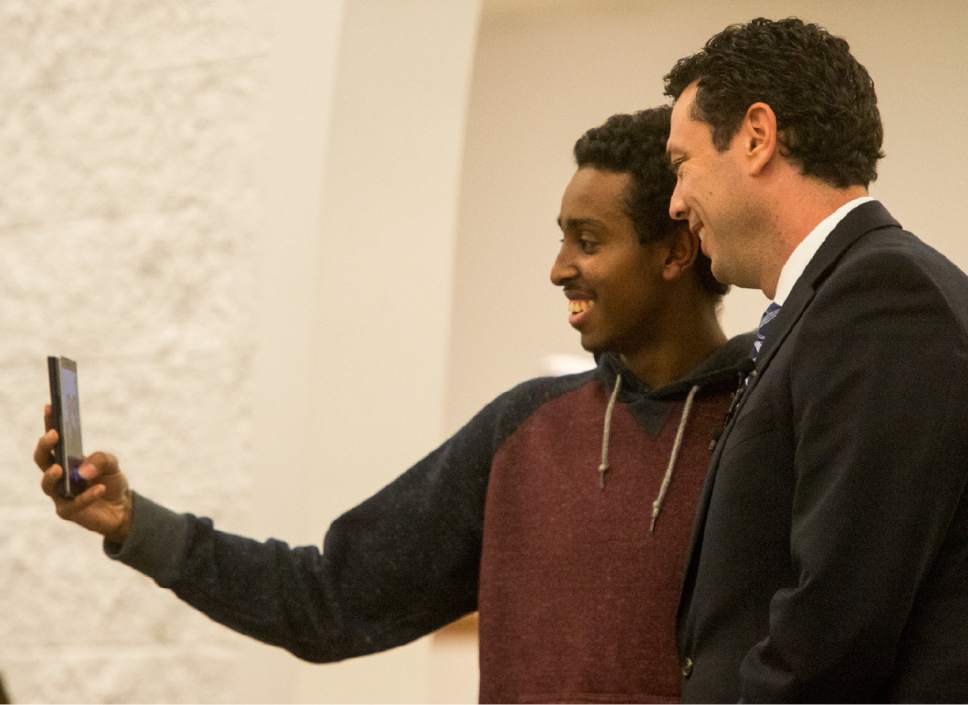This is an archived article that was published on sltrib.com in 2016, and information in the article may be outdated. It is provided only for personal research purposes and may not be reprinted.
West Valley City • Just moments after observing 5 p.m. prayers, Rep. Jason Chaffetz stood in the middle of the Khadeeja Islamic Center on Monday and condemned the recent comments of Republican presidential front-runner Donald Trump.
He said Trump's call to ban Muslims from entering the United States following an Islamist attack in San Bernardino is un-American, immoral and irresponsible.
"It is intolerance that should not stand," he said before the group of 50 Utahns. "That is not who we are as a people. It is just not acceptable."
Chaffetz, through Khosrow Semnani, a wealthy and politically connected industrialist, asked for this meeting. It was his first visit to a mosque in Utah, though he said he's been to a few outside the United States. He brought along his son Max, a student at the University of Utah.
Chaffetz said he wanted to express his support for Utah's 30,000 Muslims; more than that, he wanted to hear from them.
Imam Muhammed Mehtar and a small group visited with Chaffetz before the prayers. Mehtar told the congressman that his congregation feels generally supported in Utah, and he credited that in part to the many Mormons who go on religious missions.
"Those inclined to the LDS faith have been very sympathetic because they have been in the thick of things around the world," he said. The Church of Jesus Christ of Latter-day Saints also released a statement supporting religious plurality shortly after Trump released his call for a Muslim ban.
But Mehtar, like many of the Utahns Chaffetz heard from Monday, is frustrated and feels misunderstood. He immigrated to the United States in 1985 from South Africa and he said Muslim immigrants come to this country because it is a safe place to live and work.
When Chaffetz asked him what leads some to radicalize, Mehtar said it was the foreign policy of the U.S.; he said comments like Trump's exacerbate the situation.
"It hurts the American image abroad," he said. "It undermines the good work of yourself and many others."
Chaffetz hasn't endorsed a presidential candidate. The other Republicans in the race have said they disagree with Trump's stand.
Mohamed Jama told Chaffetz that he and other community leaders met with FBI agents recently to learn how to spot and respond to radicals. The Khadeeja Islamic Center has installed cameras to record everyone who enters. The message was that Utah's Muslims take the threat of terrorism seriously, though at the same time, Chaffetz heard repeatedly from people who are irritated that some equate terrorist organizations, such as the Islamic State, to a problem with their faith.
Salman Masud, president of the Islamic Society of Greater Salt Lake, said Muslims have been a part of this country for 200 years, and yet Islamist terrorism has only been a problem for two decades. Amir Soltani pointed to the invasion of Iraq and said many Muslims were appalled at hearing that a U.S. soldier urinated on the Quran. Soltani's point though is that that action shouldn't be seen as the U.S. disrespecting Islam, just like an act of terror shouldn't be seen as being sanctioned by Islam.
"What we have is the inability to distinguish between the acts of an individual and the acts of a community."
Chaffetz said a sliver of Muslims believes in a radicalized version of the religion and that more Muslims need to speak out against that line of thought.
"We need to understand it and call it what it is," he said.
But for Angela ElSayed, language has been part of the problem. She bristles when people refer to the Islamic State group, which she says is not a state and doesn't represent Islam.
She urged Chaffetz and the government to call the group Daesh, a nickname the group despises. President Barack Obama has used the term occasionally.
Maliha Masud told Chaffetz that being a Muslim doesn't mean she knows what is driving terrorists or how to defeat them. She says their actions are the antithesis of Islam.
Chaffetz said it is incumbent upon elected officials to differentiate the acts of extremists from the 1.7 billion Muslims worldwide. He called Monday's gathering a starting point, one he should have initiated earlier.
It came on the same day that Utah Policy released the results of a new poll that showed two-thirds of Utahns disagreed with Trump, though those who identified as "very conservative" supported a Muslim ban 52 percent to 47 percent.
The poll, conducted by Dan Jones, involved 275 adults and had a margin of error of nearly 6 percentage points.
Twitter: @mattcanham


